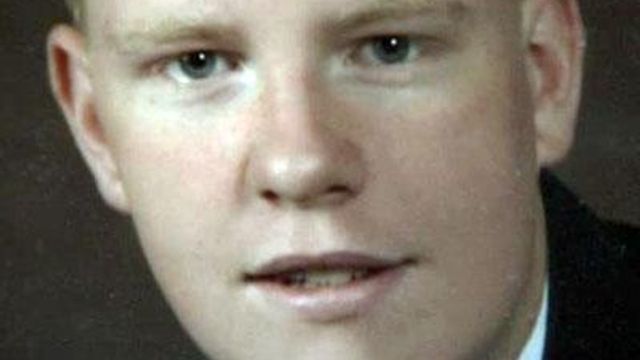Father faults Army for son's suicide
Chris Scheuerman, a retired Special Forces masters sergeant from Sanford, said he believes his son felt alone and had nowhere to go before committing suicide while serving with the Army.
Posted — UpdatedA new Army report says the suicide rate among troops is at a 30-year high.
Chris Scheuerman, a retired Special Forces masters sergeant from Sanford, said he believes his son felt alone and had nowhere to go before committing suicide while serving with the Army.
Pfc. Jason Scheuerman died of a self-inflicted gunshot wound on July 30, 2005.
“My son was sick, and no one helped him,” Chris Scheuerman said.
Jason Scheuerman had nightmares, felt despair and hopelessness, his dad said. He had even put his rifle in his mouth, but according to his grieving father, the people in charge of his son's well being said he was faking it.
Last March, Chris Scheuerman spoke before members of the Armed Services Committee’s Military Personnel Subcommittee.
“Jason desperately needed a second opinion after his encounter with the Army psychologist,” he said. “The Army did offer him that option, but at his own expense. How is a (private first class) in the middle of Iraq supposed to get to a civilian mental health care provider at his own expense? I believe a soldier should be afforded the opportunity to a second opinion via teleconference with a civilian mental health care provider of their own choice.”
Chris Scheuerman noted a “great disparity” of opinions between his son's chaplain and psychologist. The chaplain described him as “clearly troubled,” while the psychologist alleged that the young man “was capable of (faking) mental illness in order to manipulate his command.”
Chris Scheuerman said Army officials told him his son did not leave behind a suicide note.
After struggling to obtain documents related to his son’s death through the Freedom of Information Act, Chris Scheuerman said he discovered that his son did write a suicide note.
Col. Ed Crandell, chief of the Department of Behavioral Health at Womack Army Medical Center, said the military has taken soldier suicides more seriously – at war and at home.
Womack has increased its staff by 40 percent in the last three years to meet the rising demand for care, especially since soldiers are being deployed repeatedly, Crandell said. Commanders also can take away a soldier's weapon and refer him or her for treatment if they suspect anything wrong, even if the soldier doesn't want help, he said.
The military has set up a mental health hotline at 1-866-966-1020 for troops needing help.
Military chaplains play a large role in suicide-prevention training, Crandell said. They work with troops and families to identify and prepare for stresses soldiers face when they go to and come home from war, he said, noting family and friends have to go beyond suggesting mental help to physically take a soldier to the hospital and ensure they seek it.
Experts are putting more emphasis on teaching battle buddies how to police themselves. Mental health experts say even the best treatment won't stop soldiers from taking their own lives, once they set their mind to it.
Last March, Chris Scheuerman suggested that the military set up a hotline for soldiers to call.
“There has to be a safety net,” he said. “How many other Jasons are out there?”
Chris Scheuerman said if military officials had contacted him or his wife, his son would have probably still been alive today.
“We knew Jason was having problems. If they had called us, there would have been a different outcome,” he said.
• Credits
Copyright 2024 by Capitol Broadcasting Company. All rights reserved. This material may not be published, broadcast, rewritten or redistributed.






